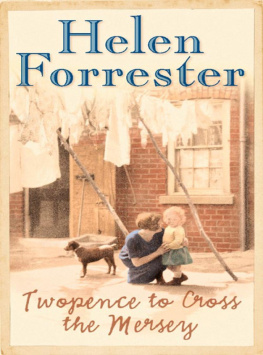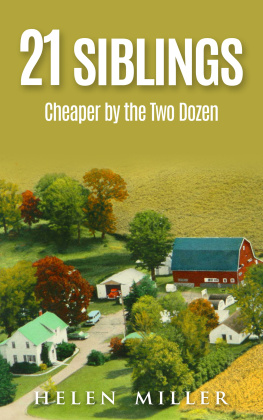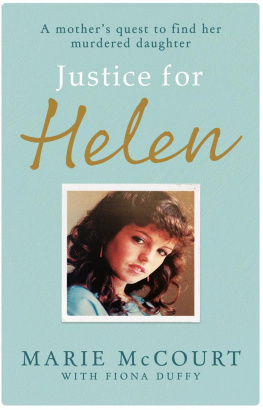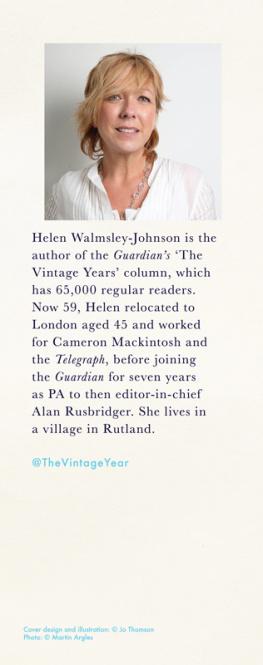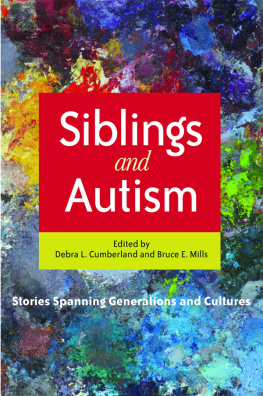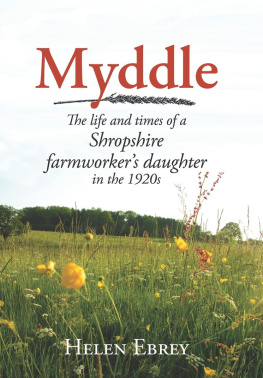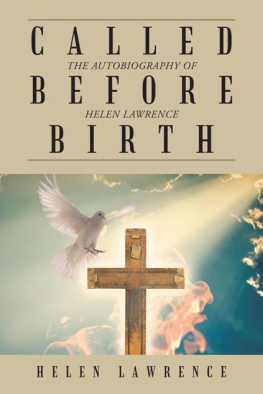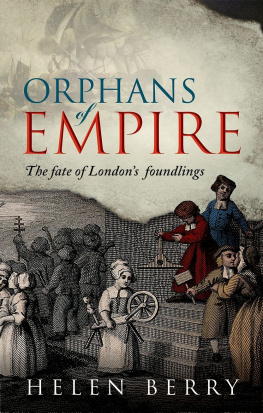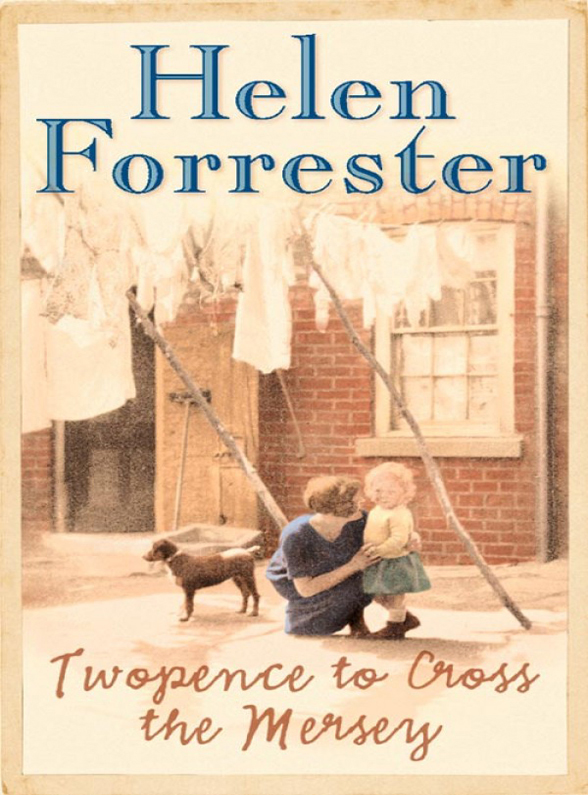Liverpool is a city through which visitors pass on their way to other places. It is to them a dull world of shipping and commerce which sprawls untidily along the north bank of the River Mersey. Many of them will not know that it has a sister port, Birkenhead, on the opposite bank, which is linked to it by ferry-boats, a railway tunnel and a road tunnel. Beyond Birkenhead lie the small seaside towns of the Wirral peninsula and behind them is pleasant countryside. My widowed grandmother lived in the Wirral, and here, while visiting her, I spent the happiest days of my childhood, on sandy beaches or in wind-swept gardens. I remember with love the rain-soaked hills looking out on to stormy seas and the turbulent estuary of the Mersey.
It used to cost twopence to cross the river on the ferry-boat from Liverpool to Birkenhead. Twopence is not a very large sum, but if one has no money, the river is a real barrier, and, during the Depression years, was an impassable one to many of the poverty-stricken people of Liverpool.
Not so many years ago, I took my little Canadian-born son to see Liverpool and the places of my childhood.
Did you live here when you were small, Ma? he asked incredulously, his strong North American accent sounding strange amid the thick, nasal speech around him.
Yes, I was in Liverpool for part of my life.
My, its dirty! Do you mind it being dirty?
I smiled, seeing it all through his strangers eyes, eyes accustomed to new buildings, miles of neon signs, miles of prairie golden with wheat or diamond-white with snow.
I laughed down at him a little ruefully.
Yes, at first I did mind. Not now, though. I soon learned that people and cities which do the hard, unpleasant work of the world cant help getting dirty. Liverpools a wonderful place when you get to know it.
He looked at me derisively and said, with all the cold logic of a five-year-old, They should use more soap and wash the streets.
My smile faded, as cold shadows of winters past crept over me. That was how I had felt, when first I had really looked at the city and not passed through it as a traveller. God, how I had minded the dirt! How terrified I had been! How menacingly grotesque the people had looked; children of the industrial revolution, nurtured for generations on poor food in smoke-laden air, grim and twisted, foul-mouthed and coarse, shaped in this strange gloomy world to serve the trade to the Americas. And I, a middle-class girl of the gender south-west of England who had been shielded from the rougher side of life by a private school system and obedient servants, had nearly gone mad with panic when, with little warning, I had been thrown amongst them. Gone was the protection of money and privilege; I had to make what I could of this grimy city and its bitterly humorous inhabitants and share with them their suffering during the Depression years.
I clutched my sons confiding little hand in mine, as, for a second, I felt again the fear which had enveloped me that January day in 1931, when, at the age of twelve and a half, I arrived in Liverpool, not to pass through it as I had done before, but to live in it.
It seemed to me that it was not my sons hand which I held so tightly but the hand of my youngest sister, Avril, and that I could hear her snivelling, as we looked out from the entrance of Lime Street Station and saw, through icy, driving rain, a city which seemed to be slowly dying, unloved and unsung, in the Depression of the nineteen-thirties.
Shut up, Avril, I said sternly, between chattering teeth. Everything is going to be all right.
Im cold and Im hungry. The wail threatened to become one of three-year-old Avrils howling tantrums, as she started to kick off her patent-leather shoes and tear at her blue satin bonnet-strings.
I loosened the wet elastic of my black school hat from under my chin. The hat, as usual, had been crammed down on top of a large ribbon bow, which held my front hair ruthlessly scraped back from a too high forehead. My spectacles were sprayed with rain and I could not see very well as I peered short-sightedly down Lime Street.
I lifted Avril up and hugged her to my damp school uniform.
Behave yourself, I ordered sharply. We are all hungry. You must be brave until Daddy comes back to collect us.
Fortunately, I did not know that my father, at that moment walking the streets of Liverpool in search of shelter for his sick wife and seven children, had no real idea of what to do to mitigate the catastrophe which had struck him. I presumed that adults always knew what they were doing and the likely outcome of their actions. I did not know that my mother, lying on a stretcher in the ladies waiting-room, her six-week-old son beside her, was sweating with pain after a major abdominal operation and was bordering on a nervous breakdown. I could not understand why we could not go to stay with my grandmother, who lived only a few miles away in the Wirral peninsula. No one had told me she had quarrelled violently with her son and his wife, whom she condemned jointly as worthless spendthrifts, and would have no more to do with us.
Busy with childish affairs of school and girlfriends, I had noticed only that during the last few weeks my parents friends were not dropping in for a drink as frequently as usual; in fact the house had been almost free of visitors for a couple of months.
Alan, who was a year younger than I, had pointed out to me a few months earlier that Mothers wonderful collection of Georgian silver had vanished from the antique sideboard on which it was normally displayed, and I had asked my mother where it had gone.
Girls should not poke their noses into the business of grown-ups, I had been told tartly, and I had retreated to Alan for consolation.
Perhaps it has been sold, he had whispered uneasily, as he ran his fingers through his corn-coloured hair.
Why? I asked, my eyes goggled in surprise.
He stared at me reflectively, his wide, blue eyes troubled. I dont know. There is something wrong. Mary Ann packed her suitcase and left on Saturday.
Mary Ann was our housemaid, a jolly, outspoken girl.
I thought she had gone home to visit her mother for a few days thats what she told me.
I dont think so. She seems to have taken everything with her. She even asked Cook for her curling-tongs back Cook was always borrowing them.
Our uneasiness grew while Mother was in hospital, until an idle word from a school-friend gave us a clue.
Father had done a mysterious thing called going bankrupt, a not uncommon occurrence in the world of 1930, but strange to me. I had heard vaguely that going bankrupt was an American disease which had struck Wall Street in New York, and that Americans committed suicide when this happened to them; mentally, I saw dozens of them hurling themselves off the tops of skyscrapers, and I wondered where Father would find a sky-scraper.
Father was a public school man who had been sent to boarding school by his widowed mother when he was only six years old; he had left it at nineteen to join the army in 1914. My mother, an orphan, had been brought up by nuns. Neither had had any training in the management of a family or a domestic budget, and they had enjoyed a high standard of living by being permanently in debt. Further, they had had seven children. Bankruptcy was inevitable, once the Depression set in and dividends dried up.
The remainder of our servants left in a body, while Mother was still in hospital, and I was left to manage the home as best I could, until we moved to Liverpool. One of our unpaid domestics took the opportunity, while my parents were absent, to take away my mothers entire wardrobe, leaving her only the outfit she had been wearing when she was whisked into hospital.

